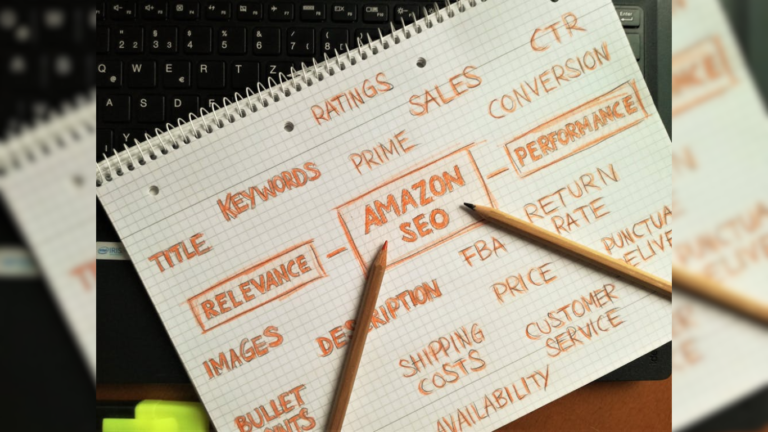Search Engine Optimization (SEO) can appear daunting, but it’s fundamentally about increasing your site’s visibility on the web. For those new to this world, our ‘SEO Tips for Beginners’ guide is the perfect starting point. In this article, we demystify the top 10 SEO techniques, breaking them down into simple, understandable terms. Whether you’re a small business owner, a blogger, or just starting your digital journey, these tips will lay the groundwork for your website’s success. We focus on practical, straightforward advice to help you navigate the SEO landscape, ensuring your site stands out in the crowded online space.
Understanding Your Audience

To make your website great, start by figuring out who’s going to read it. For instance, if you have a pet care website, your readers are likely pet owners looking for advice. By knowing this, you can create articles they’ll find helpful, like ‘Easy Dog Grooming at Home’ or ‘Best Cat Toys for Indoor Cats.’ Think about questions your pet owner audience might have, like ‘How often should I groom my pet?’ and write content that answers these questions.
Using the Right Keywords
Keywords are magic words people use to find stuff online. Say your site is about healthy eating; you’ll use phrases like ‘quick healthy dinners’ or ‘easy vegetarian lunches.’ These keywords should fit into your writing naturally. For example, you might write, ‘Looking for quick healthy dinners? Our 30-minute recipes are perfect for busy weeknights.’ This way, you’re using keywords in a way that’s helpful and makes sense to your readers.
Optimize your keyword strategy with RankMath, a powerful SEO tool that helps you identify the most effective keywords for your content and improve your website’s search engine ranking.
Creating Quality Content

Writing awesome content is crucial. If you’re running a travel blog, share stories people want to read. For example, you could write ‘My Top 5 Budget-Friendly European Destinations’ or ‘How to Travel Japan on a Shoestring Budget.’ These articles should be fun to read and packed with useful tips, like ‘Always pack a reusable water bottle to save money and stay hydrated.’ Your content should answer common travel questions and offer practical advice.
Optimize Page Titles and Descriptions
Think of your page title and description as the first things people see in a search. They’re like a mini-ad for your content. If you’re writing about ‘Easy Indoor Plants,’ make your title clear, like ‘5 Easy Indoor Plants for Beginners.’ In the description, you could say, ‘Discover the best plants to brighten up your home, perfect for beginners.’ Use phrases like ‘indoor plants’ in both, so search engines know what your page is about. This helps more plant lovers find your tips.
Improve Page Speed

A fast-loading website is super important. No one likes to wait forever for a page to show up. If your website’s about cooking, make sure it doesn’t take ages to load those yummy recipe photos. You can make images smaller in size, which helps pages load faster. Quick websites are not only user-friendly but also more likely to rank higher in search results. Faster sites mean happier visitors who stick around to check out your recipes.
To ensure your website runs smoothly and quickly, consider Bluehost for reliable and efficient web hosting services. Bluehost’s superior performance can significantly improve your website’s loading times, which is crucial for SEO.
Mobile-Friendly Design

These days, everyone’s using their phone to browse the web. So, your website needs to look good on phones, not just computers. If you have a travel blog, your readers should be able to easily read your travel tips from their phones. Make sure your site adjusts to fit any screen, big or small. This is called responsive design. When your site is mobile-friendly, travelers on the go can enjoy your content without any hassle.
With Tailwind, streamline your social media marketing efforts. It’s an excellent tool for promoting your mobile-friendly website on various social platforms, thereby increasing your site’s visibility and traffic.
Build Quality Backlinks
Think of backlinks as internet shoutouts. When other websites link to yours, it’s like they’re saying, ‘Hey, check this out!’ These shoutouts make your site look good to search engines. For example, if you write about fitness, try getting links from popular fitness blogs. Maybe write a guest post or collaborate on an article. Good backlinks from sites that people trust can really boost your website’s reputation.
For effective link-building strategies, consider using Impact.com. This platform offers insights and tools for developing strong backlink profiles that can enhance your site’s credibility and SEO.
Use Header Tags
Headers are like signs on a road, guiding your readers through your post. They make your content easy to read. Plus, they help search engines understand what your post is about. If you’re writing about ‘Gardening Tips for Beginners,’ use H2 tags for sections like ‘Choosing the Right Soil’ or ‘Watering Basics.’ This makes your article more reader-friendly and helps your gardening tips get noticed by search engines.
Regularly Update Your Content

Keep your website’s content fresh and up-to-date. Search engines love new information. Say you have a tech blog; make sure to update your articles with the latest gadgets and tech news. If you wrote about ‘Top Smartphones in 2020,’ update it for 2023. Fresh updates mean your site stays relevant and interesting, which search engines and readers both love.
Monitor and Analyze
Use tools like Google Analytics to see how your website’s doing. It’s like a report card for your site. You can see which posts are hits, where your visitors are coming from, and what they’re searching for. For example, if you find out that lots of people come to your site looking for ‘best vegan recipes,’ then you know to write more about that. Keeping track of this stuff helps you make smarter choices about what to post.
In Conclusion: Starting Your SEO Journey
In conclusion, mastering SEO is a journey, not a sprint. These 10 tips are your first steps. Remember, SEO takes time and consistent effort. Start by applying a few tips, and gradually incorporate more as you grow more confident. Don’t be discouraged if results aren’t immediate – SEO is about long-term gains.
To further enhance your strategy and keep abreast of the evolving trends in digital marketing, delve into our other resources. Learn the ins and outs of social media with our guide ‘How Can I Start Working on Social Media? Your Guide to a New Beginning’, perfect for complementing your SEO efforts. For insights on effectively leveraging hashtags, don’t miss ‘Mastering How to Use Hashtags Effectively’. These articles will arm you with additional tools to help your website rise in search rankings.
And if you ever get stuck, remember that there are plenty of resources online to help you out. So, take that first step today, and watch your website steadily climb up the search rankings. Good luck, and happy optimizing!
SEO Basics: Frequently Asked Questions

Q1: What is SEO and why is it important for beginners? A1: SEO, or Search Engine Optimization, is the practice of improving your website to increase its visibility when people search for products or services related to your business in search engines. For beginners, understanding SEO is crucial because it helps your site get more traffic, which can lead to more potential customers and readers.
Q2: How long does it take to see results from SEO? A2: SEO is a long-term strategy. Typically, it can take several months to a year to start seeing significant results. It depends on various factors like the competitiveness of your industry, the quality of your content, and the consistency of your SEO efforts.
Q3: Can I do SEO on my own or do I need to hire a professional? A3: Beginners can start with basic SEO strategies on their own, especially by following tips like those in the article. However, for more complex tasks or competitive industries, you might consider hiring an SEO professional for better results.
Q4: Are keywords still important in SEO? A4: Yes, keywords are still a fundamental part of SEO. They help search engines understand what your content is about and how it should be ranked. The key is to use them naturally within high-quality content.
Q5: How can I tell if my SEO efforts are working? A5: You can monitor your website’s performance using tools like Google Analytics. Look for improvements in organic traffic, search engine rankings, and engagement metrics like time spent on site and bounce rate. These are indicators that your SEO is effective.
Unlock the secrets to financial success with 'Rich Dad Poor Dad'. Learn the money lessons the wealthy teach their kids that you won't find in traditional education. Start your journey to financial independence today — click here to get your copy!





[…] more SEO secrets with our ‘Top 10 SEO Tips for Beginners‘ – your next step in mastering […]